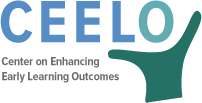Each Indistar indicator is accompanied by a “Wise Way” that provides a context for the indicator, a research synthesis supporting it, and reference and resources. The full set of indicators and Wise Ways is available here.
The indicators represent several domains:
- Access to early learning opportunities
- District offers all children free full-day, full-week Kindergarten.
- All preschool-aged children in the district have access to free high-quality pre-Kindergarten (pre-K).
- District has a system in place for determining the nature and extent of early learning opportunities each student has experienced prior to school entry.
- School has a system in place for determining the nature and extent of early learning opportunities each student has experienced prior to school entry.
- Access to high-quality learning opportunities
- Teachers of children in pre-K have a bachelor’s degree.
- All teachers providing education to pre-K through grade three students have specialized education in early childhood education or child development.
- All teachers providing education to pre-K through grade three students receive at least 15 hours of professional development annually.
- Teachers of children in pre-K have a bachelor’s degree.
- All pre-K classrooms have ratios of at least one adult for every 10 students and all Kindergarten to grade three classrooms have at least one adult for every 12 students.
- All pre-Kindergarten (pre-K) classrooms have class sizes with 20 of fewer students and all Kindergarten classrooms have class sizes with fewer than 24 students.
- Transitions that Support Student Learning
- All teachers (including pre-K teachers in schools with pre-K programs) are part of a team that includes other teachers, an instructional leader, and related service personnel that assesses needs for services and referrals for services.
- The District has a system in place to assure children transitioning from Part C to Part B are assessed in their home language prior to children’s third birthday.
- The District has a system in place to assure those screening children who are transitioning from Part C to Part B are trained in valid and reliable methods of assessing very young children.
- School has system in place for assuring that all kindergarten through third grade teachers have access to entering students’ data.
- Program/School Leadership and Decision Making
- An administrator (e.g. principal, assistant principal or other instructional leader) who is knowledgeable about early childhood development and learning and developmentally appropriate practices for young children participates actively with the early childhood instructional team.
- Curriculum, Assessment, and Instructional Planning
- Instructional teams design the curriculum to be aligned with the state early learning standards and Common Core or the state’s own standards.
- Instructional Teams ensure curriculum is developmentally appropriate for young children in pre-K through grade three classrooms.
- The Instructional Team engages in a process of collecting and using formative assessment data to inform instructional planning.
- Teachers individualize instruction based on developmentally appropriate assessment data to support students and provide enhanced learning opportunities.
- Each student is assessed at least 3 times each year using standards-based assessments that have district, state, and/or national norms.
- Classroom Instruction
- Students are involved in activities each day that are designed to stimulate development in all domains: social-emotional, physical, approaches to learning, language, and cognitive development.
- All teachers meet with family members (parents or guardians) formally at least two times a year to engage in two-way communication regarding students’ cognitive, socio-emotional, and physical development outside the classroom.
